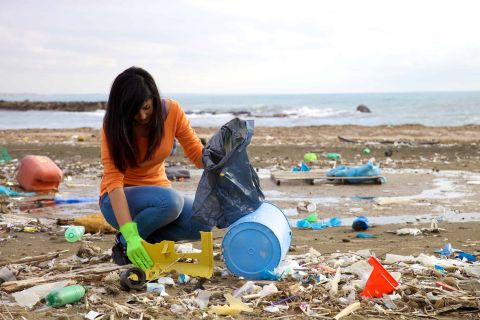Scientists baffled by mystery of missing ocean plastic
Scientists have found that the amount of plastic floating in the Atlantic Ocean has remained constant for the past 20 years - but the production of plastic has only increased- Then where is all the plastic going, if not in the Atlantic?
"We know that the global production of plastic has increased at a very high rate, and we know that plastics in the waste stream have also increased over time," Discovery News quoted Kara Lavender, an oceanographer at the Sea Education Association in Woods Hole, as saying.
"So how come we're not seeing increasing amounts of plastic in areas where the plastic is accumulating? That's the mystery," she added.
For nearly 40 years, the Sea Education Association (SEA) has been taking college students on educational semesters at sea.
Students have dragged a one meter-wide mesh throughout the western Atlantic, from Newfoundland to the southern Caribbean. When it comes back onboard after sampling a nautical mile, SEA students use tweezers to pick through the plankton, jellies, tiny fish and occasional tar balls.
Within the gooey brown mush, they count and record every single piece of plastic.
To the surprise of Lavender and her colleagues, the study also showed no overall change in the amount of plastic snared from 1986 to 2008.
One theory is that it has broken down into pieces too small to catch in the net. Another possibility is that it's sinking below the surface due to the weight of organisms, or birds, fish and other animals are eating it and excreting it.
Each of these possibilities is life threatening to animals.
Plastic can cause damage to their insides, malnourishment, or ingestion of chemical pollutants that come along with it.
Of course, maybe the plastic is simply washing back up onto shore. Or the harder-to-believe possibility is that people are becoming more environment-conscious.
"This may be another unplanned experiment of humankind," oceanographer David Karl said.
"Since the 1950s, we've been putting plastic into the ocean. Now we're trying to figure out where it's gone and what it's done and what the impact is ecologically.
